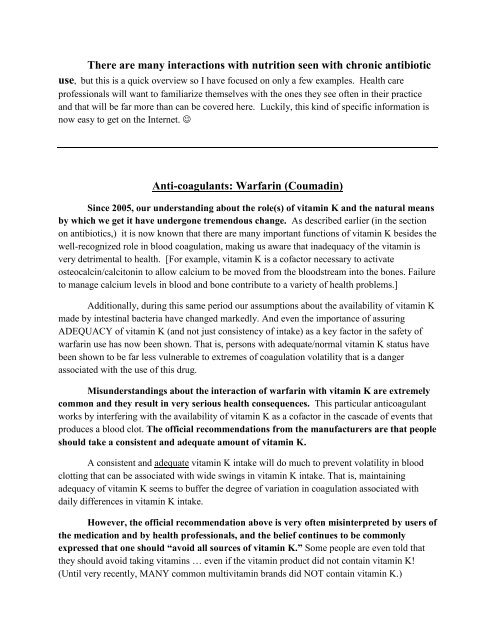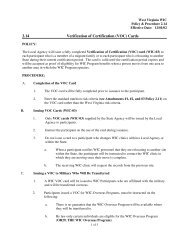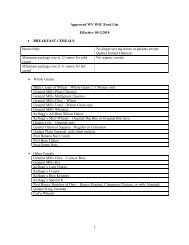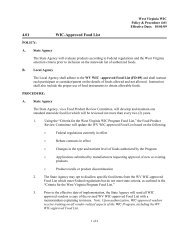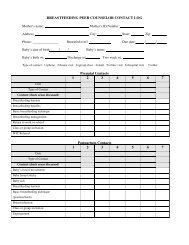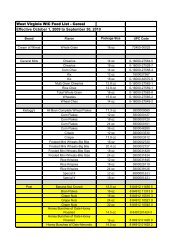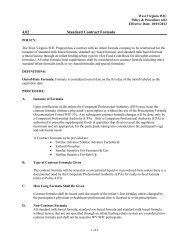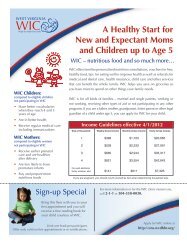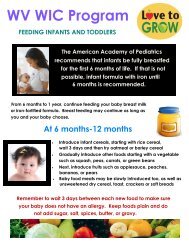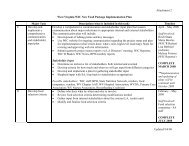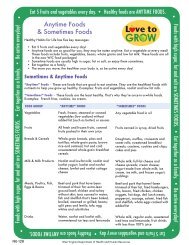SOME Drug / Nutrition Interactions of Interest
SOME Drug / Nutrition Interactions of Interest
SOME Drug / Nutrition Interactions of Interest
You also want an ePaper? Increase the reach of your titles
YUMPU automatically turns print PDFs into web optimized ePapers that Google loves.
There are many interactions with nutrition seen with chronic antibioticuse, but this is a quick overview so I have focused on only a few examples. Health carepr<strong>of</strong>essionals will want to familiarize themselves with the ones they see <strong>of</strong>ten in their practiceand that will be far more than can be covered here. Luckily, this kind <strong>of</strong> specific information isnow easy to get on the Internet. Anti-coagulants: Warfarin (Coumadin)Since 2005, our understanding about the role(s) <strong>of</strong> vitamin K and the natural meansby which we get it have undergone tremendous change. As described earlier (in the sectionon antibiotics,) it is now known that there are many important functions <strong>of</strong> vitamin K besides thewell-recognized role in blood coagulation, making us aware that inadequacy <strong>of</strong> the vitamin isvery detrimental to health. [For example, vitamin K is a c<strong>of</strong>actor necessary to activateosteocalcin/calcitonin to allow calcium to be moved from the bloodstream into the bones. Failureto manage calcium levels in blood and bone contribute to a variety <strong>of</strong> health problems.]Additionally, during this same period our assumptions about the availability <strong>of</strong> vitamin Kmade by intestinal bacteria have changed markedly. And even the importance <strong>of</strong> assuringADEQUACY <strong>of</strong> vitamin K (and not just consistency <strong>of</strong> intake) as a key factor in the safety <strong>of</strong>warfarin use has now been shown. That is, persons with adequate/normal vitamin K status havebeen shown to be far less vulnerable to extremes <strong>of</strong> coagulation volatility that is a dangerassociated with the use <strong>of</strong> this drug.Misunderstandings about the interaction <strong>of</strong> warfarin with vitamin K are extremelycommon and they result in very serious health consequences. This particular anticoagulantworks by interfering with the availability <strong>of</strong> vitamin K as a c<strong>of</strong>actor in the cascade <strong>of</strong> events thatproduces a blood clot. The <strong>of</strong>ficial recommendations from the manufacturers are that peopleshould take a consistent and adequate amount <strong>of</strong> vitamin K.A consistent and adequate vitamin K intake will do much to prevent volatility in bloodclotting that can be associated with wide swings in vitamin K intake. That is, maintainingadequacy <strong>of</strong> vitamin K seems to buffer the degree <strong>of</strong> variation in coagulation associated withdaily differences in vitamin K intake.However, the <strong>of</strong>ficial recommendation above is very <strong>of</strong>ten misinterpreted by users <strong>of</strong>the medication and by health pr<strong>of</strong>essionals, and the belief continues to be commonlyexpressed that one should “avoid all sources <strong>of</strong> vitamin K.” Some people are even told thatthey should avoid taking vitamins … even if the vitamin product did not contain vitamin K!(Until very recently, MANY common multivitamin brands did NOT contain vitamin K.)


